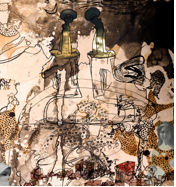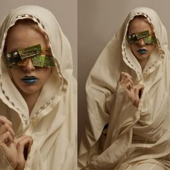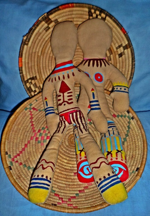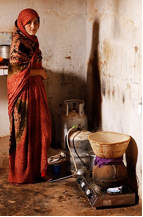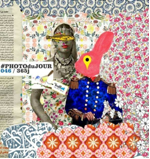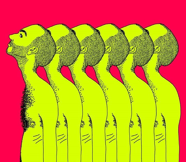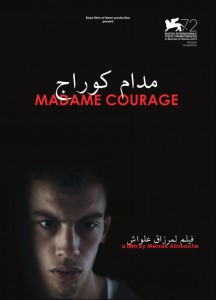ALGERIANISM (PART 1)
Collective Exhibition
The word ‘Algerianism’ initially described a literary movement constituted in the early twentieth century by a group of French and Algerian intellectuals, who aimed to build a cultural ideology to reunite both settler and native communities. After the independence, the notion of Algerianism was taken by Algerian thinkers into a more nationalist and patriotic reference, looking to reconstruct a ‘new’ Algerian persona and identification.
‘Algerianism (part 1)’ is a project collaboration co-curated by Algerian event manager, Toufik Douib, and French artist born in Algeria, Patrick Altes, that brings a reflective on Algeria’s emergent art scene on what the concept of Algerianism would mean 50 years after the country’s independence.
The perspective arising from the works presented is that there are multiple and eclectic facets of Algeria, being a singular country in the Maghreb, African, Arab and Francophone worlds. In fact, each artist shares an engaging vision and powerful message of cultural identity exploring topics such as the current geopolitical crisis or the place of women in the Algerian contemporary landscape. Artists exhibiting:
Patrick Altes (visual artist)
‘Mizo’ Hamza Ait Mekideche (visual artist)
Souad Douibi (performance artist)
Kaci Ould Aissa (photographer)
Ghania Zaazoua ‘Princess Zazou’ (artist designer)
Yasser Ameur (visual artist)
26 October – 08 November I Open every day I 9am to 9pm
Private view, talk and reception: Monday 26 October 6pm – 9pm
At the Tabernacle Gallery
34-35 Powis Square, London W11 2AY, UK
(Tube Station: Westbourne Park – Notting Hill Gate)
This is a Nour Festival event
Supported by Istikhb’Art
For more information:
https://www.facebook.com/events/1641673726115030/
www.tabernaclew11.com/latest/exhibitions/
Private View RSVP and curator contact:
Toufik Douib
+44(0)7773877113
Above are part illustrations of the artwork exhibited:
1- ‘Mare Nostrum’ (Patrick Altes)
2- ‘Once upon a time, El Hayek’ (‘Mizo’ Hamza Ait Mekideche)
3- ‘This is Me, This is My Story’ (Souad Douibi)
4- ‘Istikbal’ (Kaci Ould Aissa)
5- ‘Import Export’ (Ghania Zaazoua – Princess Zazou)
6- ‘The Yellow Man’ (Yasser Ameur)

